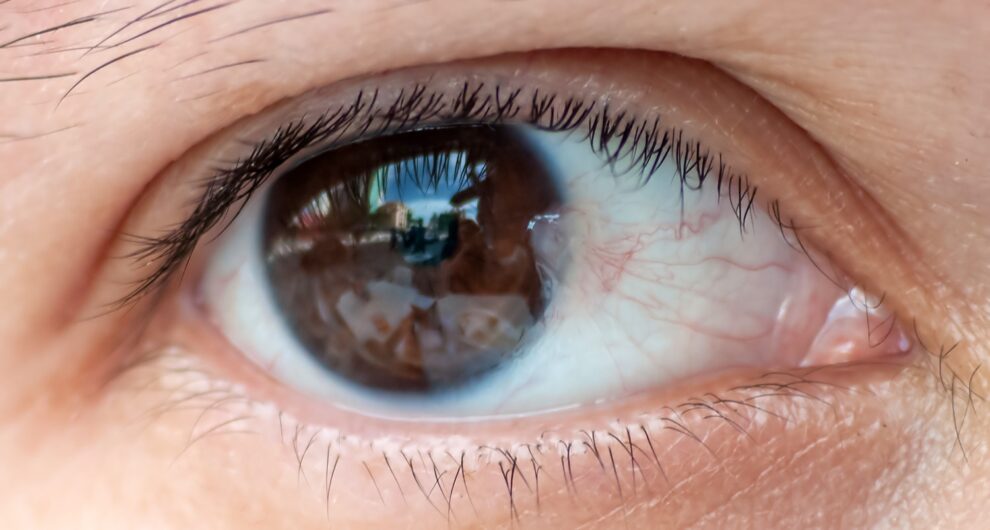Pterygium Surgery

A pterygium is a pinkish, triangular-shaped benign tissue growth on the cornea that is most often found in 20- to 40-year-old patients from very sunny climates. It can be caused by prolonged exposure to UV rays, irritants like wind and dust, or dry eye syndrome.
If you have a pterygium you will be able to see it, so many people want to have it removed for cosmetic reasons. However, because any surgery has its risks, we do not usually recommend removing a pterygium unless it affects vision. A pterygium can cause a burning or itching sensation, a gritty feeling, and even blurred vision. These symptoms are what we are trying to correct in pterygium surgery. Even when a pterygium is surgically removed, it may grow back, particularly if the patient is less than 40 years of age. These recurrence rates can reach as high as 50%, but newer techniques employed at Center For Eye Care Excellence are available to improve your chances of success. To better keep regrowth of a pterygium at bay, we can use conjunctival flaps, conjunctival transplants and/or amniotic membrane to decrease the risk of recurrence to about 5%-10%. To further prevent recurrence, and even to prevent the initial growth of a pterygium, always make sure you are practicing good personal eye care, like always wearing UV protection sun glasses and keeping any signs of dry eye syndrome in check by regularly visiting our office.
The surgery itself takes about 30 to 45 minutes, and afterward you will need to wear an eye patch for a few days. However, you will be able to return to most of your normal activities after just a few days of recovery. Using steroid eye drops for a few months after the procedure reduces the chance of a pterygium recurrence.
We encourage you to thoroughly discuss your options with our doctors as well as the risks, benefits and alternatives to surgery. As with any surgical procedure, risks are involved, but in the hands of Drs. Schultze and Eden you can be confident that you are in the hands of some of the finest and most experienced ophthalmic surgeons.

